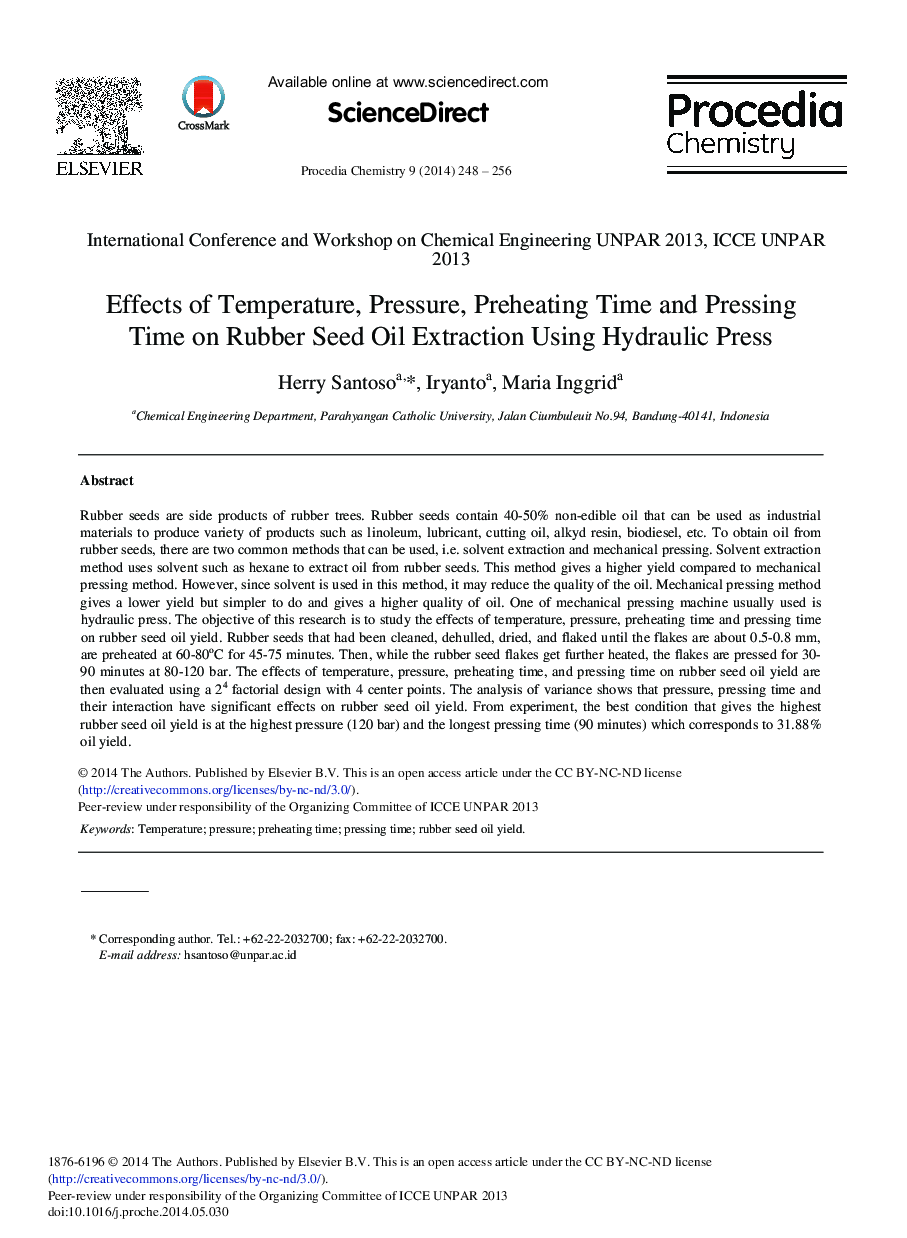| Article ID | Journal | Published Year | Pages | File Type |
|---|---|---|---|---|
| 240038 | Procedia Chemistry | 2014 | 9 Pages |
Rubber seeds are side products of rubber trees. Rubber seeds contain 40-50% non-edible oil that can be used as industrial materials to produce variety of products such as linoleum, lubricant, cutting oil, alkyd resin, biodiesel, etc. To obtain oil from rubber seeds, there are two common methods that can be used, i.e. solvent extraction and mechanical pressing. Solvent extraction method uses solvent such as hexane to extract oil from rubber seeds. This method gives a higher yield compared to mechanical pressing method. However, since solvent is used in this method, it may reduce the quality of the oil. Mechanical pressing method gives a lower yield but simpler to do and gives a higher quality of oil. One of mechanical pressing machine usually used is hydraulic press. The objective of this research is to study the effects of temperature, pressure, preheating time and pressing time on rubber seed oil yield. Rubber seeds that had been cleaned, dehulled, dried, and flaked until the flakes are about 0.5-0.8 mm, are preheated at 60-80 °C for 45-75 minutes. Then, while the rubber seed flakes get further heated, the flakes are pressed for 30- 90 minutes at 80-120 bar. The effects of temperature, pressure, preheating time, and pressing time on rubber seed oil yield are then evaluated using a 24 factorial design with 4 center points. The analysis of variance shows that pressure, pressing time and their interaction have significant effects on rubber seed oil yield. From experiment, the best condition that gives the highest rubber seed oil yield is at the highest pressure (120 bar) and the longest pressing time (90 minutes) which corresponds to 31.88% oil yield.
